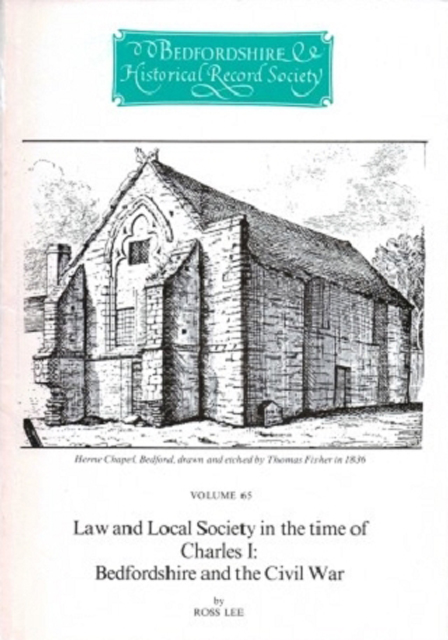III - Royalist Delinquents and Catholic Recusants
Published online by Cambridge University Press: 03 August 2023
Summary
INTRODUCTION
The document that follows provides valuable information about Bedfordshire royalists and recusants from a little-used source. In August 1648, during the second civil war, a parliamentary ordinance required local committees to produce detailed financial information about the confiscated estates of these two groups within their respective counties. These returns now form two volumes (Additional Manuscripts, vols. 5494, 5508) in the vast collection under the care of the Department of Manuscripts at the British Library. The Bedfordshire papers form the first section of volume Add. Mss. 5494. They appeared in print in 1888, when they were published by the Bedfordshire Architectural and Archaeological Society, with a brief introduction by G. A. Blaydes.
It now seems worthwhile to reprint this text for several reasons. The original work has long been unavailable. The title provided by Mr Blaydes – ‘List of Popish Recusants for Bedfordshire’ – is quite misleading, as is his brief introduction. His transcription unfortunately also contains many errors. The aim of this present introduction is to provide some notes on the context of the document and its reliability as a primary source relevant to current concerns about these two important groups of people.
The ordinance of 9 August 1648, which placed another unwelcome burden on the local sequestration committees, was only the latest initiative in a policy that was five years old. Early hopes the the civil war would be over after one brief campaign in the autum of 1642 had been disappointed. Under the guidance of John Pym, the Westminster parliamentarians passed three financial ordinances in 1643 that enabled their side to meet, on the whole successfully, the heavy burdens that a long war must inevitably bring. 1643 saw the innovations of a regular tax on property, another on consumer goods, and the sequestration of the estates of royalists and recusants.
Parliament’s first sequestration ordinance was passed on 27 March 1643. In fact the general principle that the ‘delinquents’ (as they were termed) should pay the cost of the war had been enunciated as early as September 1642, and the estates of some prominent royalists had already been seized; now the process was to be regularised and extended under the authority of parliamentary ordinance.
- Type
- Chapter
- Information
- Law and Local Society in the Time of Charles IBedfordshire and the Civil War, pp. 111 - 154Publisher: Boydell & BrewerFirst published in: 2023

